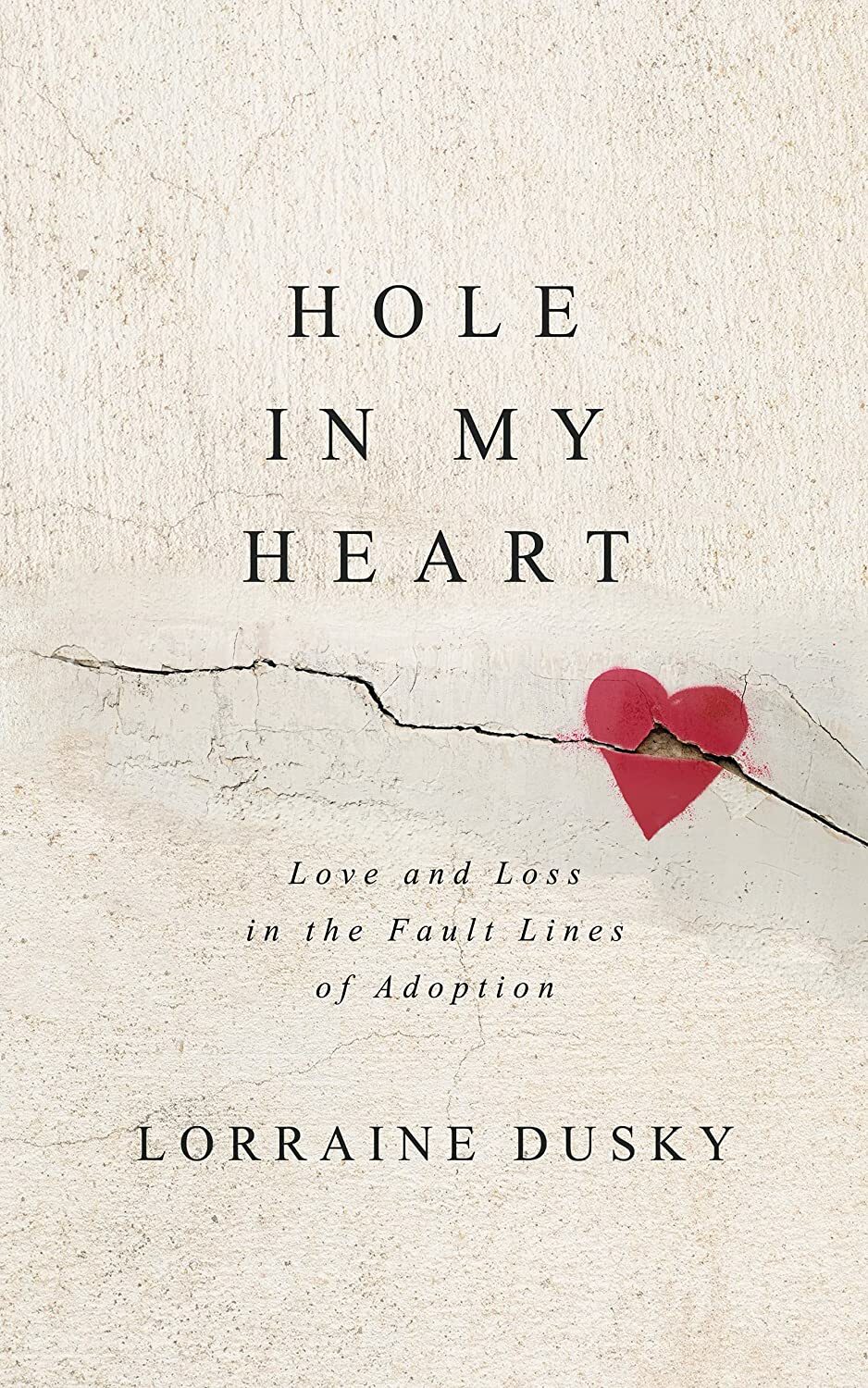
Although Sag Harbor writer Lorraine Dusky did not know it several years ago when she began revising “Hole in My Heart,” her expansive memoir about “Love and Loss in the Fault Lines of Adoption,” the U. S. Supreme Court in Dobbs v. Jackson Women’s Health Organization declared on June 24, 2022 that the Constitution of the United States does not confer a right to abortion.
This landmark ruling would not only affect abortion policy, but also the politics and procedures of adoption (a footnote to that decision, Dusky points out, offers adoption as an option to abortion). The result is Dusky’s impassioned update of the book’s earlier publication, adding 30,000 words and, at the suggestion of her editor, providing more personal information about her life before and after she dazedly signed adoption papers: “I had a baby and I gave her away. But I am a mother.”
Although Dusky had written an even earlier narrative in 1979, “Birthmark,” 13 years after her daughter Jane had been born and adopted, and was also writing op ed pieces and speaking at events, she obviously felt there was more to say, particularly on the second noun in her subtitle: “loss.”
She quotes Orson Welles, if you want a happy ending, it depends, of course “on where you stop your story.” The first to come out as a “birth mother” — the language used to describe a woman who “relinquishes” her child at birth, as the legal phrasing usually has it, bothers her — but she minces no words in acknowledging what she did, why she regrets it and how she fights on for all states to open sealed birth certificates to adoptees, if they so choose.
Now, publishing this book during Women’s History Month, 44 years after “Birthmark,” she shows she’s still in the fight, a direct-speaking, tireless warrior, more perceptive and better educated about the affairs of the heart. The book’s style is conversational, sections reading as though she were talking with herself, and answering. She quotes objections and acknowledges mistakes, but fiercely defends the humanity of her argument and hopes to win over opponents, especially given New York State’s January 15, 2020 ruling that adoptees could now access original birth certificates, which may have the names of their mothers. Unless the woman was married, most birth certificates say "Father unknown."
She gives space to the fear and anger of adoptive parents and knows there are birth mothers who want to keep their anonymity, but her main argument is that too many birth mothers, unmarried and frightened, are intimidated by adoption agencies and social workers engaged in immoral and unjust “social engineering.” Opponents of open access, she shows, are often men, many of whom are adoptive parents themselves, including Supreme Court Chief Justice John Roberts.
Following her editor’s encouragement, Dusky includes stories of previous loves in her book, most of which ended in disappointment. These include the romance she had with Jane’s father, Patrick, an older married man and a well-regarded journalist who loved her but could not leave his family, or years later even consent to see Jane or Dusky again. There were others who didn’t work out, especially a young love, Tom (‘Ah, what if?’), but it is only her husband now of over four decades, writer Anthony Brandt, who has been her rock and salvation. He is thanked profusely. As are others, including New York State Assemblyman Fred Thiele, who advocated on behalf of those who argued in Albany for open access.
The strength of “Hole in My Heart” is its narrative arc, an engaging story that moves back and forth over decades, interwoven with boxed-up essay sections that provide legal and political context. Though unapologetically zealous, the book is clearly the work of an experienced journalist who appreciates fairness and knows how style and structure can create anticipation even when the outcome is known.
It’s no spoiler alert to note (as the table of contents does) that Dusky’s “reunion” with Jane does not lead to unabashed happiness, as suggested by the subtitle’s order of “Love and Loss.” Indeed, as the years go by, Jane spirals down, eventually committing suicide. How much of her desperation is linked to psychological and medical problems (pathological lying, drugs, inability to hold even a menial job, epilepsy and all its social side effects) related to her being given away is a key question that haunts Dusky, who cites studies, anecdotes, scholarship, enough data perhaps to support the “nature” side of nature v. nurture.
Still, she is a professional, though, and knows not to draw easy conclusions from anecdotes and ambiguity. Yes, the book is too long and the author, perhaps understandably, seems obsessed with the subject — she notes that she’s written on other topics, but she also lets on as to how often she introduces Jane into discourse. This kind of hole in the heart can never be fixed by surgery.
On Saturday, April 29, at 5 p.m., Lorraine Dusky will be at Canio’s Books to speak about the updated edition of “Hole in My Heart” with editor Marylee McDonald of Grand Canyon Press. Canio’s Books is at 290 Main Street, Sag Harbor.
Correction: In the previous version of this review, it stated that adoptees as well as birth mothers would be allowed to access the birth records of children released for adoption after the passage of a 2019 law in New York. The law only allows adopted individuals over 18 access to original birth certificates, and not all birth records.